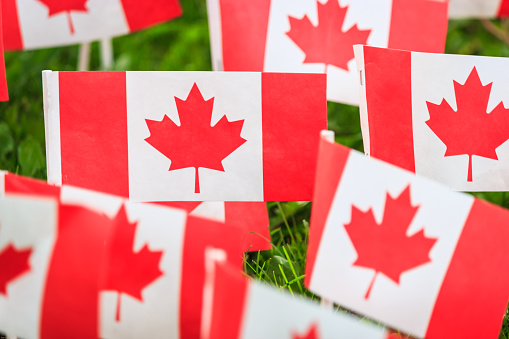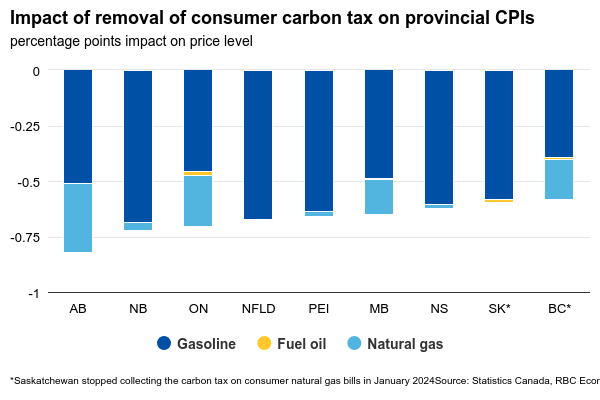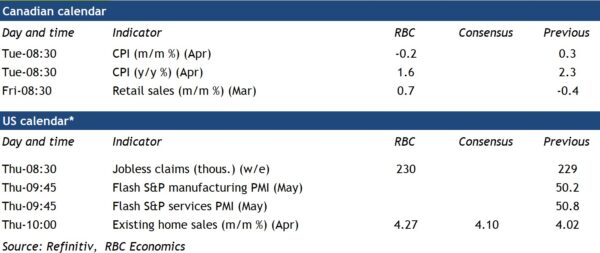April’s inflation reading for Canada on Tuesday will be distorted again by tax changes with the removal of the consumer carbon tax on energy products at the start of the month. This builds upon previous distortions caused by the federal GST tax break between December 2024 and February 2025.
We expect (after-tax) price growth in the Canadian consumer price index to drop to 1.6% in April from 2.3% in March, largely due to the removal of the carbon tax. Gasoline prices plummeted by 10% nationally in April from March, and we expect consumer natural gas prices plunged 27%.
The underlying inflation trend (controlling for the tax change) will be closely monitored after March data showed a moderate downside surprise, breaking a five-month streak of mostly upside surprises.
The April inflation data is unlikely to show significant pressure from import tariffs yet, and we expect import substitution to alternative sources and consumer substitution to non-tariffed products will ultimately limit the impact of Canadian retaliatory tariff measures on consumer prices (see issue in focus here).
Still, we expect food price growth to remain elevated at about 3.2% year-over-year in April like March. Core inflation (excluding food and energy) is projected to rise to 2.6% from 2.4%. Annual growth in the Bank of Canada’s preferred median and trim measures, which exclude the impact of tax changes, should hold steady, just under 3%.
March’s Canadian retail sales figures released next Friday will be closely watched for signs of shifting spending patterns driven by tariff anxieties. Statistics Canada’s advance indicator showed a 0.7% monthly increase, fully reversing February’s 0.4% decline. March’s upturn was largely powered by a surge in auto sales as consumers purchased vehicles ahead of anticipated tariffs. Auto sales pulled back in April, according to early industry reports, but our tracking of broader consumer spending trends remained resilient compared to consumer sentiment.
Week ahead data watch





